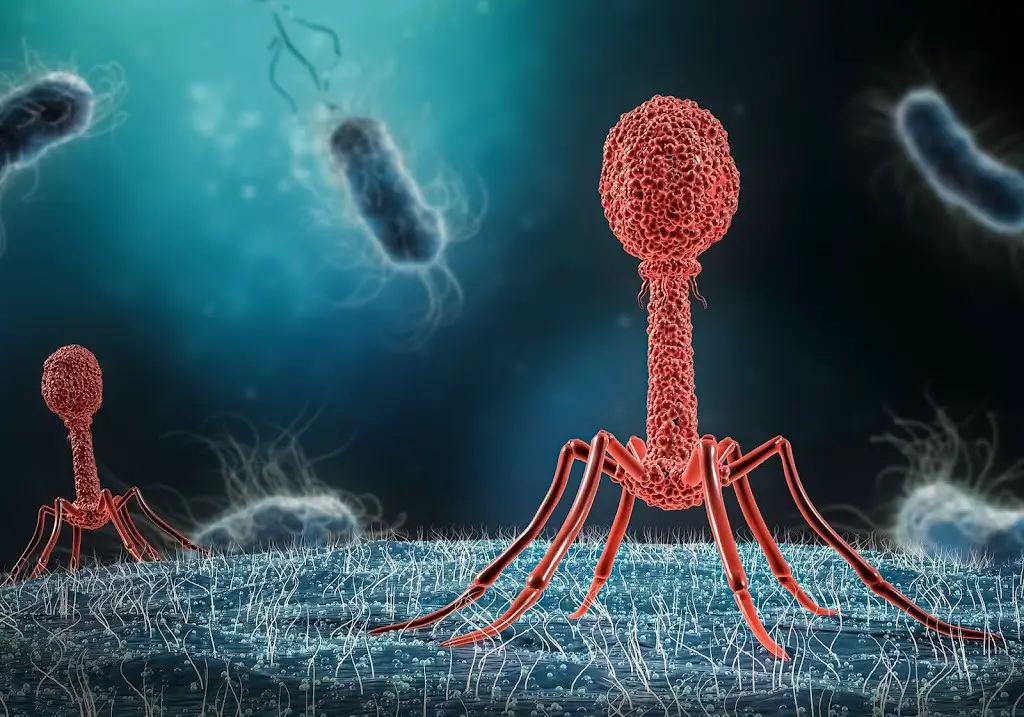
Phages, like other viruses, have a complex life cycle that causes them to be classified as non-living, despite the fact that they exhibit some of the characteristics of a living entity. Viruses and phages are not considered complete living organisms because they cannot carry out biological processes without the assistance of another organism and its cellular machinery. Proteins, nucleic acids, lipids, and carbohydrates are examples of complex molecules. They can’t do anything on their own until they enter a living cell ( bacterial cell in case of phage). Viruses cannot multiply in the absence of cells. That is why they are referred to as non-living things.
List of characteristics of bacteriophage as a living thing and non-living thing
| Living characteristics of bacteriophages | Non-living characteristics of Bacteriophages |
|---|---|
| Capable of multiplying inside a host cell (bacteria)An obligatory intracellular parasite. | Cannot multiply extracellularly, i.e., Outside the cell. |
| Capable of infecting another cell (bacteria). | Metabolic activity is absent. |
| Possesses nucleic acid (either DNA or RNA), proteins (Capsid), and Enzymes for replication. | Protoplasm is absent. |
| Can mutate. | Crystallization of viruses is possible. |

Viruses are the most primitive non-cytoplasmic and cellular infectious agents. D.J. Iwanowski, a Russian botanist, discovered the virus in an infected tobacco plant in 1892. The term “virus,” on the other hand, was coined by M.W. Beijerink (1898). Then, in 1935, W.M. Stanley, an American chemist, isolated the pure crystal of Tobacco Mosaic Viruses (TMV) and concluded that viruses are made of nucleoproteins.



Thanks for the amazing content.
This comment has been removed by a blog administrator.
Nice article Rafa. Hard to believe that a non-living form or entity can shape everybody’s lives